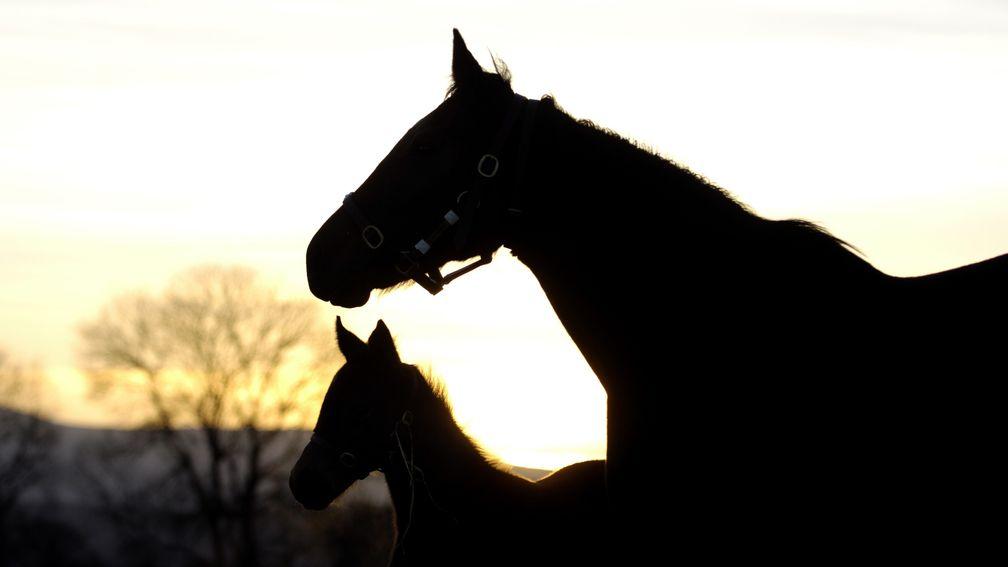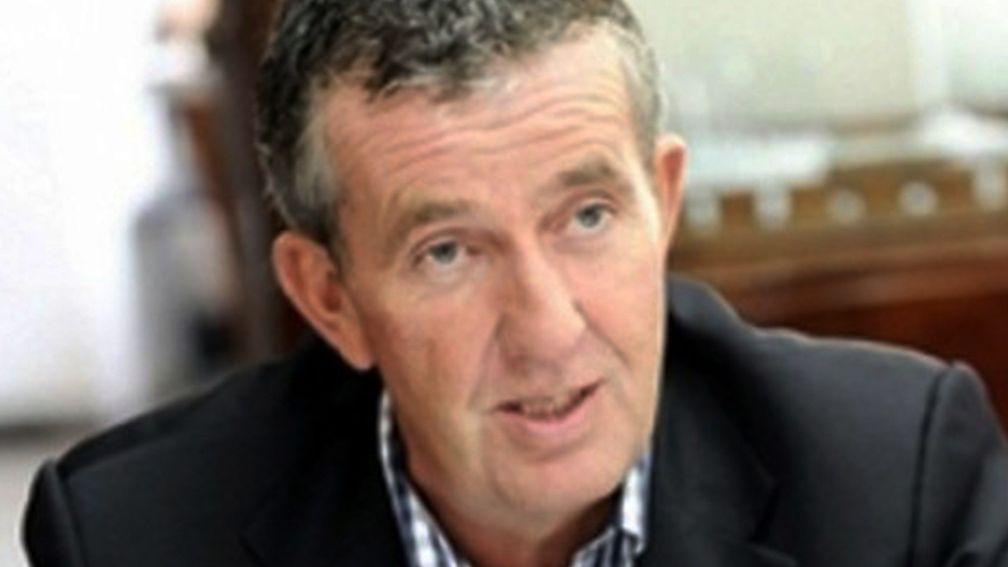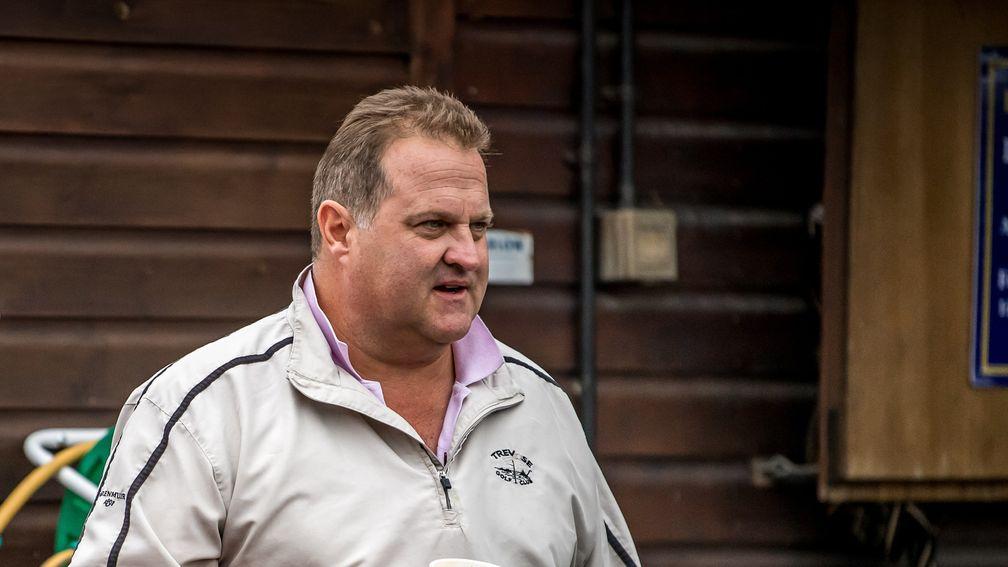Bloodstock industry should not need to be cajoled to put its house in order

Few, if any, of the revelations in Justin Felice's report on the buying and selling of horses will have surprised those who do the buying and selling. Most will not have been guilty of the crimes but will have known full well the crimes were being committed. That, in itself, is another reason for sadness.
Although the word crimes is used here, not all the findings unearthed in Felice's review represent what the law would understand as criminal acts, although plenty of them do. The others might simply be regarded as immoral, unethical or deceitful, which is hardly cause to put out the bunting and throw a party.
When the Racing Post investigated sales ring malpractice two years ago there were complaints from within the industry, some of whose members wanted people to believe the allegations were exaggerated, misinterpreted or based on false perceptions. Those voices were not vocal on Thursday evening when we published chunks of what Felice had outlined in his BHA-commissioned report. This time the silence spoke volumes.
It is worth restating, as Felice does, that among the bloodstock community the offenders are a minority. Unfortunately, that minority is big enough to have tainted the whole. There can be no doubt there must be meaningful change. To understand why, we need only make public a little more of the report's contents.
As a reminder, the former chief superintendent of Lancashire Police found the bloodstock industry to be largely unregulated and bloodstock agents to be completely unregulated. Numerous industry participants told him they had been victims of wrongdoing, often relating to "improper inducements and payments".
Felice painted a picture of secret profiteering, conspiracy and dual representation. He noted "a small number of unscrupulous individuals" had repeatedly been identified by interviewees and lamented that the terrible behaviour was being conducted with relative impunity because of a fear-induced code of silence.
There was, in fact, so much strong material in the report it was impossible to present all the important judgements. We can now at least partly rectify that.

Stressing the scale of the scandal, Felice wrote: "Whilst the bloodstock industry currently purports to self-regulate through the Bloodstock Industry Code of Practice . . . there was a considerable volume of testimony provided by interviewees of alleged breaches of the code, primarily by 'agents' . . . but also by other participants in the bloodstock sales process.
"Many of these breaches constitute not only breaches of the code but also breaches of related agent/fiduciary legal duties, and in some cases potentially breaches of applicable criminal legislation [including one or more of the Bribery Act 2010, the Fraud Act 2006 and the Criminal Law Act 1977].
"Agents themselves even acknowledged failings of their fellow agents. One stated there is 'bullying' from some agents . . . and another noted that five per cent of agents take a short-term view of their client and seek to manipulate the system to suit them rather than the client.
"The review team finds that the behaviour of some unscrupulous agents is a substantial cause for concern and, if allowed to continue unchecked, risks considerable damage to the entire bloodstock industry."
Since Thursday's revelations a prominent Irish jumps consignor has been in touch to say a significant number of agents will not look at his horses because they know he refuses to give kickbacks.
Others have passed on that one common misdemeanour is where an agent, representing a client, buys a horse whose vendor was, unbeknown to the client, wholly or partly that very same agent.
There is understood to have been a relatively recent such case involving a point-to-pointer, bought by an agent and then not long later signed for in the ring by that agent, on behalf of a client, for a significantly larger sum. In the last few days that particular agent has been named regularly and not in flattering terms.
Among the eight recommendations proposed by Felice was that the BHA should have jurisdiction over the currently unregulated bloodstock sector and that agents – most of whom, it must be stressed again, are completely honourable – should be licensed. It is blindingly obvious both need to happen.
Following an investigation by The Daily Telegraph in 2004, Newmarket-based lawyer Justin Wadham, himself a former agent, argued there could be no reasonable argument for agents not agreeing to be licensed and thereby subject to the rules of the sport's regulatory body.
"The reluctance of any agent to submit might tell its own story," he said. It absolutely would. It would also tell a story if the sales companies did not support the licensing move and facilitate it. As part of the licensing agreement, agents should also sign up to allowing regulatory access to bank accounts if an investigation is taking place. Once again, the innocent have no reason to be concerned.
One of what Felice called "the improper practices" is the demanding of totally unwarranted luck money payments from vendors by buyers, their agents or trainers, who certainly do not escape criticism in the report, with the author referencing accusations of "corruption" and "skulduggery".
The Racing Post was this week forwarded a letter sent by the manager of a major racing operation to the person from whom he had bought a horse at a sale. In the letter, the well-known racing figure asks the vendor to pay what he sweetly refers to as his five per cent "luck penny". The sum being chased equated to much more than pennies. The fact the letter was printed on the organisation's headed stationery underlines just how normalised the practice has become and the alarming sense of impunity felt by the sender.
One of Felice's recommendations – all of which should be implemented – is for sales houses to make their processes more transparent, so the improper practices might be stopped. The obligation some feel about paying those luck pennies patently has to be stopped. At the very least, Tattersalls, Goffs and others should outline that any payment over a set amount – perhaps £250 – is equivalent to an inducement and therefore criminal.
As part of the push for transparency, it would be a welcome step if vendors were stopped from bidding on their own horses beyond reserves the vendors themselves have set. Failing that, when a vendor does bid beyond a reserve the auctioneer should be required to announce it as a vendor bid. Also crucial is that sales companies log – and make public – the full ownership and beneficial ownership of every horse due to be sold. None of those changes would be hard to introduce.
Encouragingly, the signals coming out of the first meeting of industry stakeholders on August 8 were positive. Also good to see was the clear public backing given to the report by trainers George Baker and Ralph Beckett. Less pleasing to learn was that the Racing Post's revelations had caused some rumblings among those present at the August 8 session.
That view was expressed by respected bloodstock agent Tom Goff, who actually attended wearing his Racehorse Owners Association council member hat. He told the Racing Post "enormous progress" had been made at the meeting but criticised us for writing about the leaked report and claimed making the information public had "the potential to blow what is an embryonic and delicate process off course".

The idea that consenting to bring regulation and propriety to an unregulated and heavily criticised multi-million-pound industry can only be achieved through "a delicate process" will be seen by many as extraordinary.
Those representing the industry should not need to be cajoled into doing what is so palpably the right thing. They should be rushing to sign on the dotted line.
Some will say it would be unfair if reform happened only in Britain, and it is perfectly true changes are every bit as badly needed in Ireland. As such, it would be deeply regrettable if the Irish authorities declined to introduce their own regulation or failed to reciprocate any penalties imposed on offending individuals in Britain.
To conclude, it is worth highlighting another point made by Felice.
He wrote: "Many participants spoke freely about their experience and/or knowledge of unethical practices in the bloodstock sales industry and the need for greater integrity, transparency and accountability, failing which the bloodstock industry was at serious risk of being publicly exposed by investigative media and/or those who have fallen victim to some of the improper practices which were cited. It was widely acknowledged that any such exposure would be likely to seriously damage the bloodstock industry's reputation."
If, despite all that Felice has found, and all we now know, the bloodstock community chooses not to put its house in order and ostracise the rotten elements, it deserves to be damaged, exposed and investigated, not just by the media but also those official authorities who can inflict proper punishment.
If it really cannot see that, there is indeed a long and rocky road ahead.
More in-depth coverage of the Bloodstock Report
Leaked report calls for end to 'unethical' and 'unlawful' sales ring practices
'It is a risk to let your bloodstock agent know how much you have to spend'
A brave approach by the BHA to outline the bloodstock industry's failings
Change is long overdue and for the greater good this report must be acted upon
Cooper describes bullying at less prestigious sales as 'absolutely horrendous'
Published on inComment
Last updated
- We know that times are tight - but racecourses really do need to step up and improve outdated weighing rooms
- The budget has heaped even more trouble on racing - and I fear many trainers will now decide the numbers just don't add up
- Why I think Cheltenham Festival handicaps need to change - JP McManus writes exclusively for the Racing Post
- No-one has ever emerged from the womb wearing a trilby - racing's future survival hangs on pursuing a young audience
- Four score and ten just a number to Peter Harris as July Cup triumph shows there's more to the elderly than medical conditions
- We know that times are tight - but racecourses really do need to step up and improve outdated weighing rooms
- The budget has heaped even more trouble on racing - and I fear many trainers will now decide the numbers just don't add up
- Why I think Cheltenham Festival handicaps need to change - JP McManus writes exclusively for the Racing Post
- No-one has ever emerged from the womb wearing a trilby - racing's future survival hangs on pursuing a young audience
- Four score and ten just a number to Peter Harris as July Cup triumph shows there's more to the elderly than medical conditions